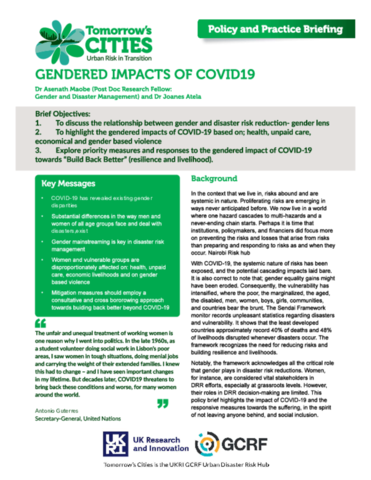In the context that we live in, risks abound and are systemic in nature. Proliferating risks are emerging in ways never anticipated before. We now live in a world where one hazard cascades to multi-hazards and a never-ending chain starts. Perhaps it is time that institutions, policymakers, and financiers did focus more on preventing the risks and losses that arise from risks than preparing and responding to risks as and when they occur. Nairobi Risk hub
With COVID-19, the systemic nature of risks has been exposed, and the potential cascading impacts laid bare. It is also correct to note that; gender equality gains might have been eroded. Consequently, the vulnerability has intensified, where the poor, the marginalized, the aged, the disabled, men, women, boys, girls, communities, and countries bear the brunt. The Sendai Framework monitor records unpleasant statistics regarding disasters and vulnerability. It shows that the least developed countries approximately record 40% of deaths and 48% of livelihoods disrupted whenever disasters occur. The framework recognizes the need for reducing risks and building resilience and livelihoods.
Notably, the framework acknowledges all the critical role that gender plays in disaster risk reductions. Women, for instance, are considered vital stakeholders in DRR efforts, especially at grassroots levels. However, their roles in DRR decision-making are limited. This policy brief highlights the impact of COVID-19 and the responsive measures towards the suffering, in the spirit of not leaving anyone behind, and social inclusion.
